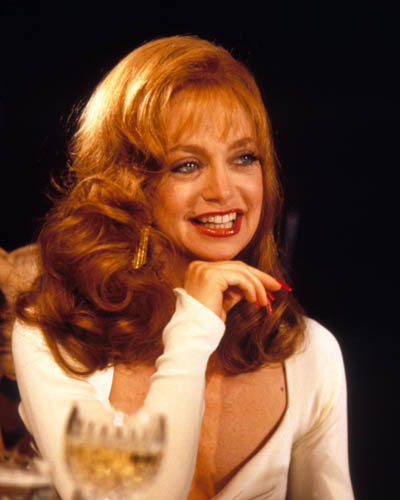Goldie Hawn wasn’t supposed to last. When she burst onto the scene in the late 1960s, she seemed like a passing trend — a blonde bombshell with a high-pitched laugh, body paint, and a bubbly presence that fit the groovy mood of the time. But Goldie knew better. Behind the glitter and the giggle was a mind that was sharp, strategic, and fearless.

She began far from the limelight, not on a Hollywood set but in a Washington, D.C. dance studio, teaching ballet and dreaming of Broadway. TV was never the plan. Stardom even less so. But when she landed a role on Rowan & Martin’s Laugh-In, she leaned fully into the “ditzy blonde” persona—then turned it inside out. The world laughed at her. She laughed with them — and built an empire while they weren’t paying attention.

In 1969, her performance in Cactus Flower stunned critics and won her an Academy Award. She didn’t stop there. By the time Private Benjamin hit screens in 1980, Hawn wasn’t just acting—she was producing. In an era when women were rarely trusted behind the camera, Goldie broke barriers by centering a female lead who was naive but not powerless. The film was a box office smash and an industry milestone.

Still, Hollywood never quite knew what to do with her. Too beautiful to be taken seriously. Too silly to be seductive. Too upbeat to be introspective. And yet, she kept defying expectations — making hits like Overboard, Death Becomes Her, and The First Wives Club, each time putting complex, funny, resilient women at the center of the story.

And when the roles dried up, Goldie didn’t retreat. She reinvented. In 2003, she founded MindUP, a nonprofit dedicated to teaching children mindfulness, emotional regulation, and brain health. Long before mental health became a cultural buzzword, Hawn was speaking candidly about anxiety, happiness, and how to find peace in a chaotic world.

Goldie Hawn’s greatest rebellion wasn’t loud or flashy. It was joyful. It was strategic. It was smiling while she built something no one saw coming — a career, a message, a legacy.
She wasn’t the punchline. She was the producer.
She wasn’t fading. She was evolving.
So maybe the silliest woman in the room was never silly at all — maybe she was just smart enough to play the part and brave enough to outgrow it.